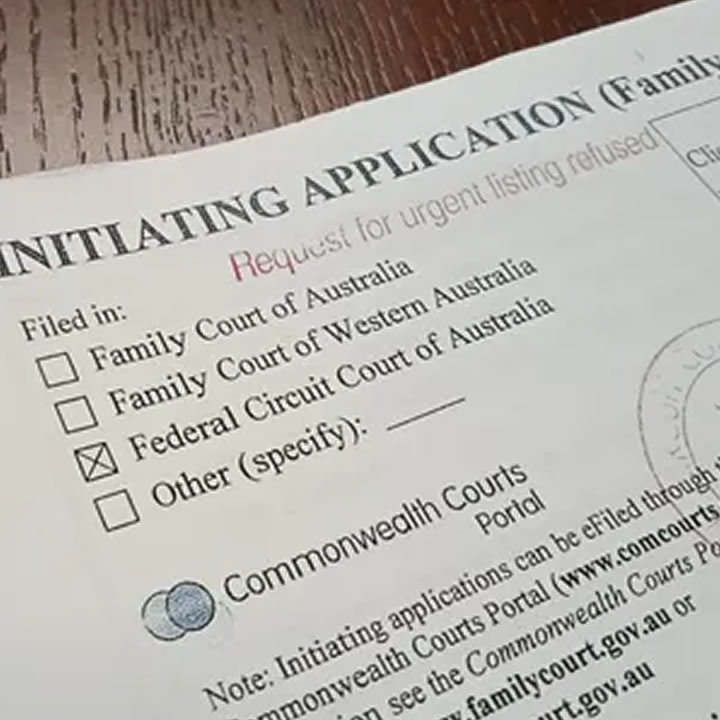If you are looking to start a new case in the family court to obtain binding court orders, you have to use a family law initiating application. Following this, depending on the various circumstances of your case, the court can either make final orders, or interim orders.
You may wish to start a court case for any of the following matters:
- Property/financial matters
- Parenting
- Maintenance
- Nullity
- Medical procedures
- Validity of marriage
- Passports
- Child support
Family Law Initiating Application and Parenting Matters
Parties who are in the process of filing a family law initiating an application for parenting disputes should also keep a note of the documents such as notice of risk and affidavit – in addition to the initiating application.
Family Law Initiating Application and Property Matters
Property matters include property settlement and division of assets. This is the process through which parties split their assets after a divorce or separation. If they are not able to reach agreements by themselves, they must apply for property orders at family courts.
For this application, they will require an initiating application, financial statements, and affidavits.
It is important for them to make full and frank disclosure of all assets.
What Is Section 60I Certificate in Family Law?
In family courts, it is very important to first attend family dispute resolution and mediation in case of disputes. Courts encourage parties to reach amicable settlements among themselves. Only if negotiations fail can parties approach family courts.
Regardless of whether this is for parenting matters or property matters, attending mediation is compulsory before approaching family courts for final orders. Parties will need to show proof that they attended family dispute resolution before approaching the court.
The Section 60I certificate can act as proof to demonstrate that the involved parties have attempted dispute resolution.
However, in some scenarios, there are certain exemptions. This means that in some cases parties will not need to obtain a Section 60I certificate before approaching family courts.
In case of urgent applications for instance if the court is satisfied that there’s a risk that a parent may expose a child to harm or abuse, or any other form of family or domestic violence.
If a party is unable to attend FDR due to incapacity or geographical inaccessibility. In case a party has breached and continues to breach previous parenting orders, and is not concerned about their obligations.
Any other reason why the court feels that FDR and Section 60I certificate is not necessary?
***
Author info: John Bui is the Principal Solicitor of JB Solicitors – a law firm based in Sydney, Australia. John is a Nationally Accredited family law Mediator and Arbitrator with over 10 years of experience in family law and commercial litigation.

